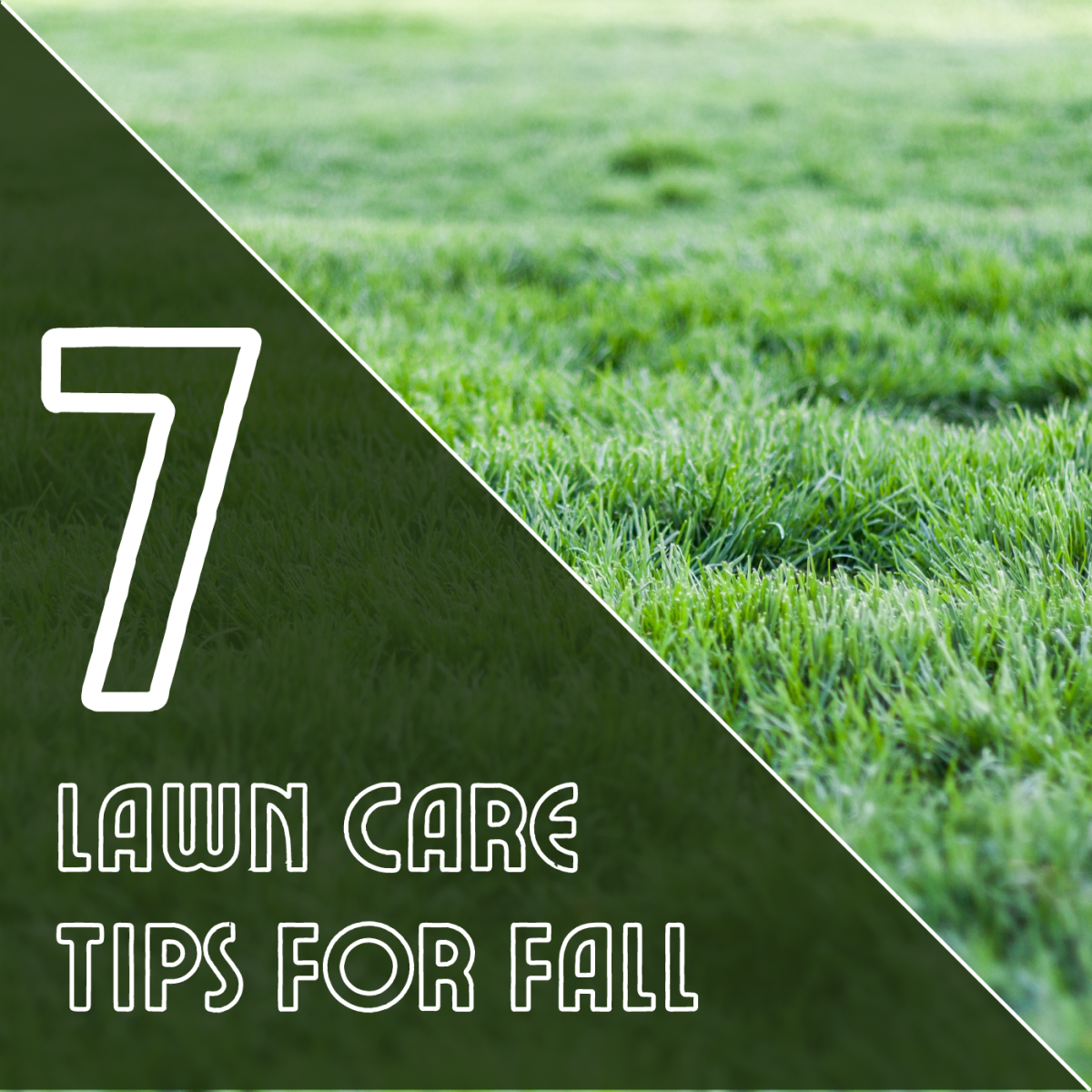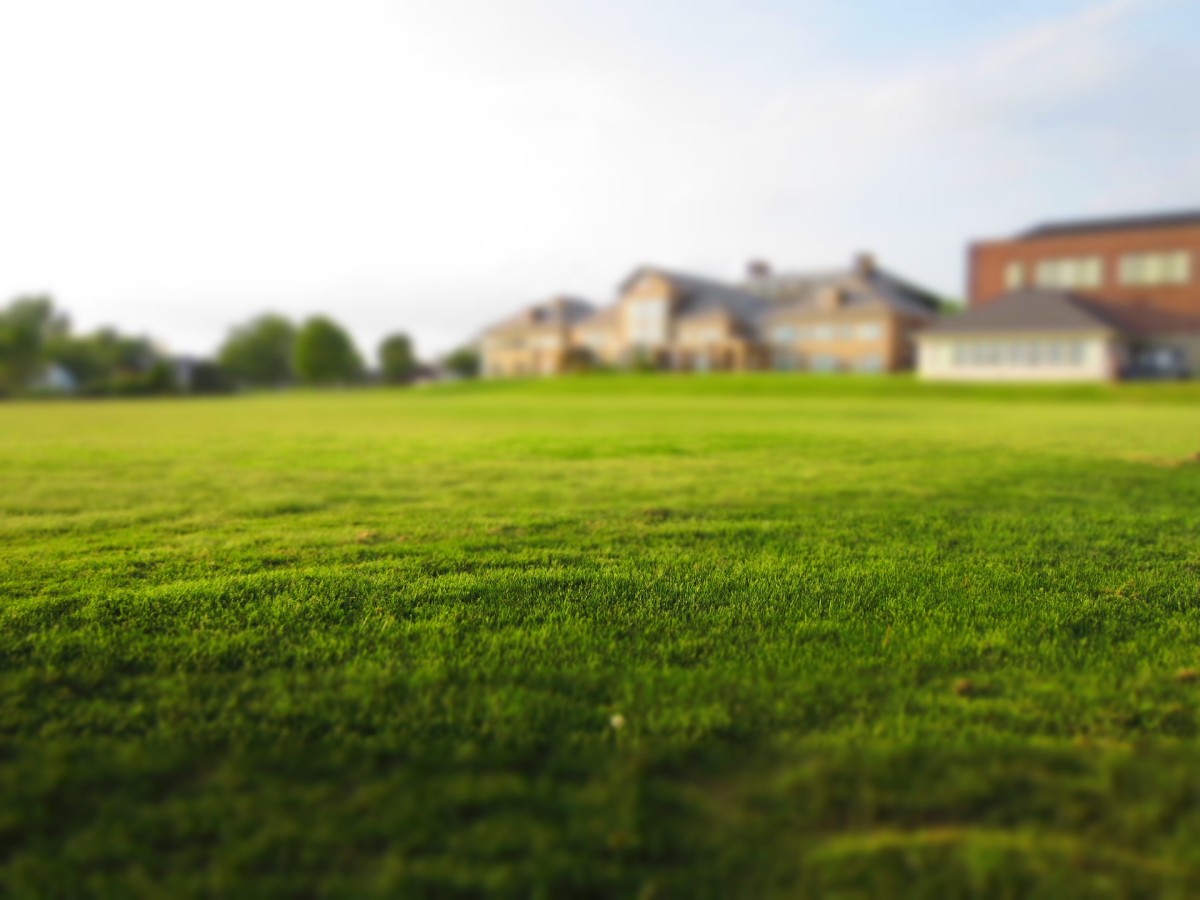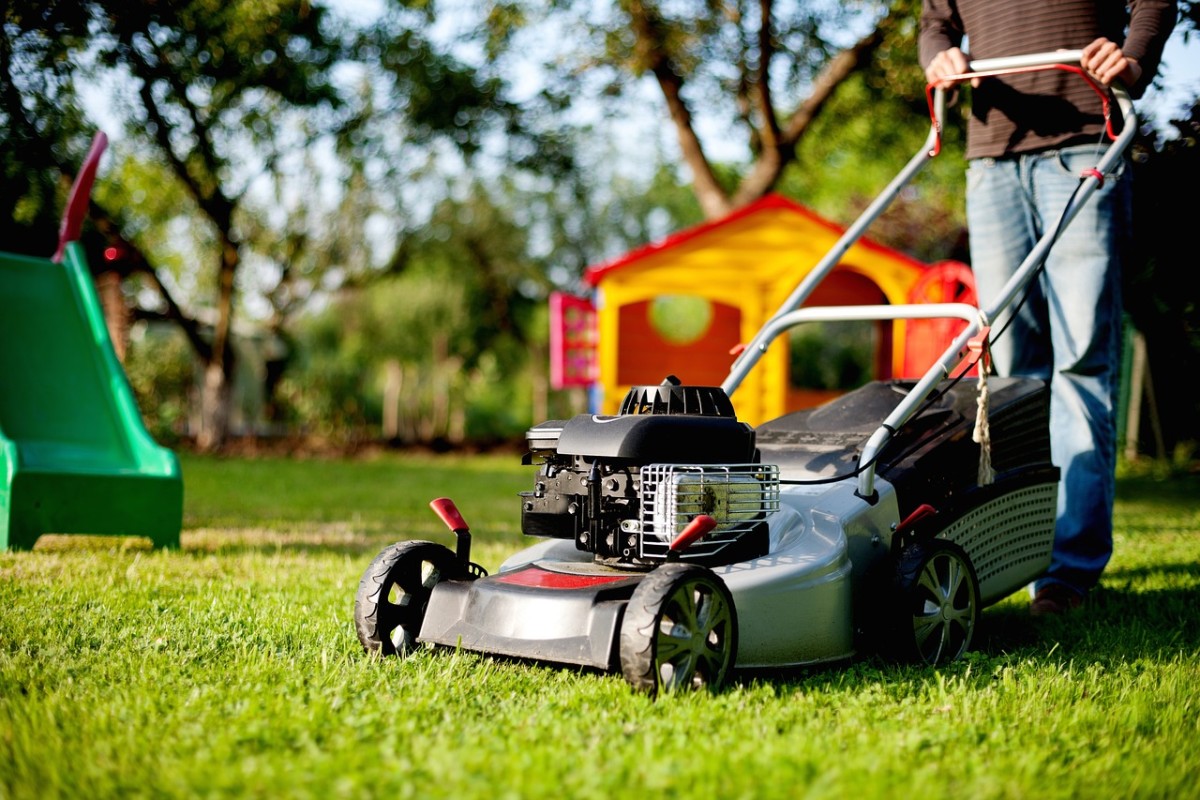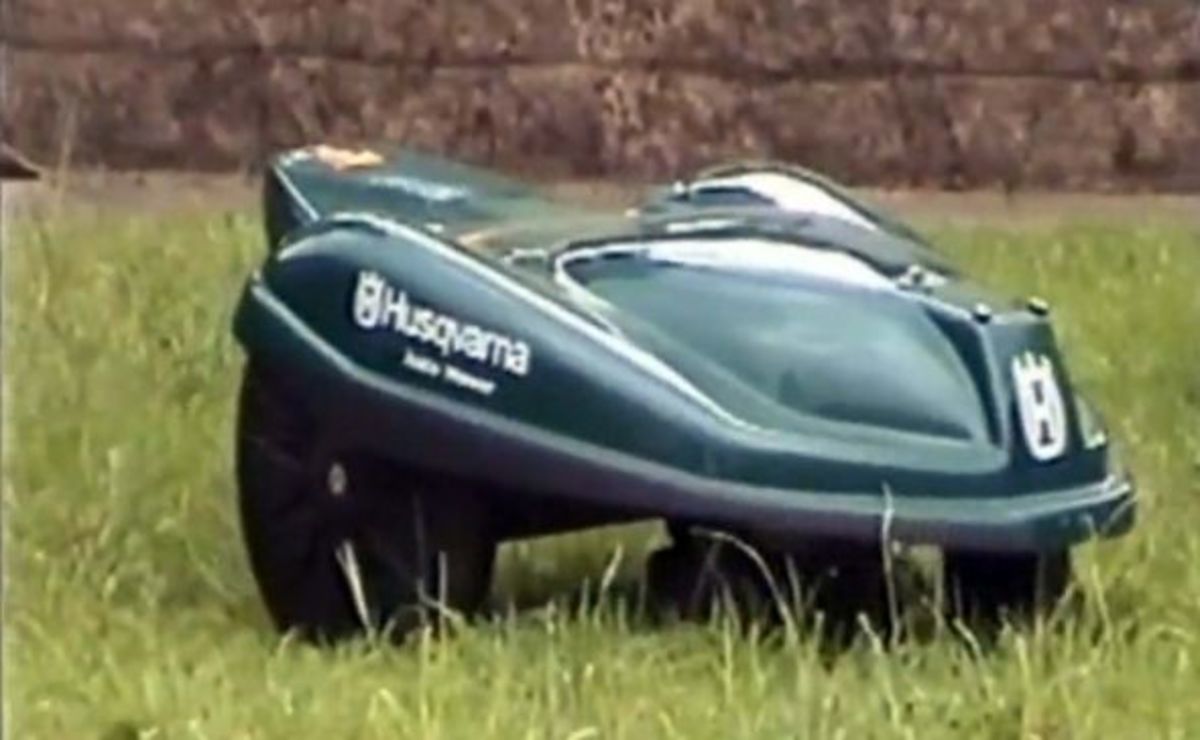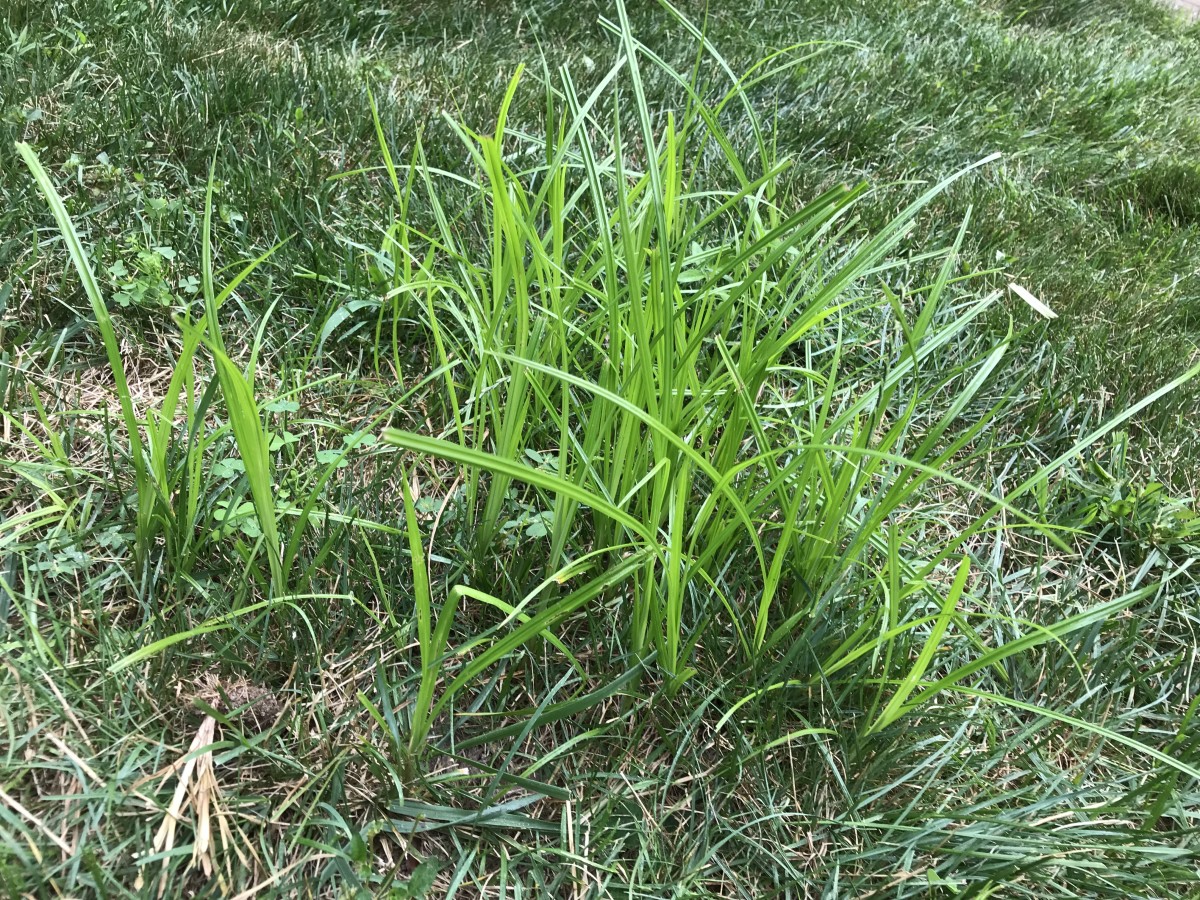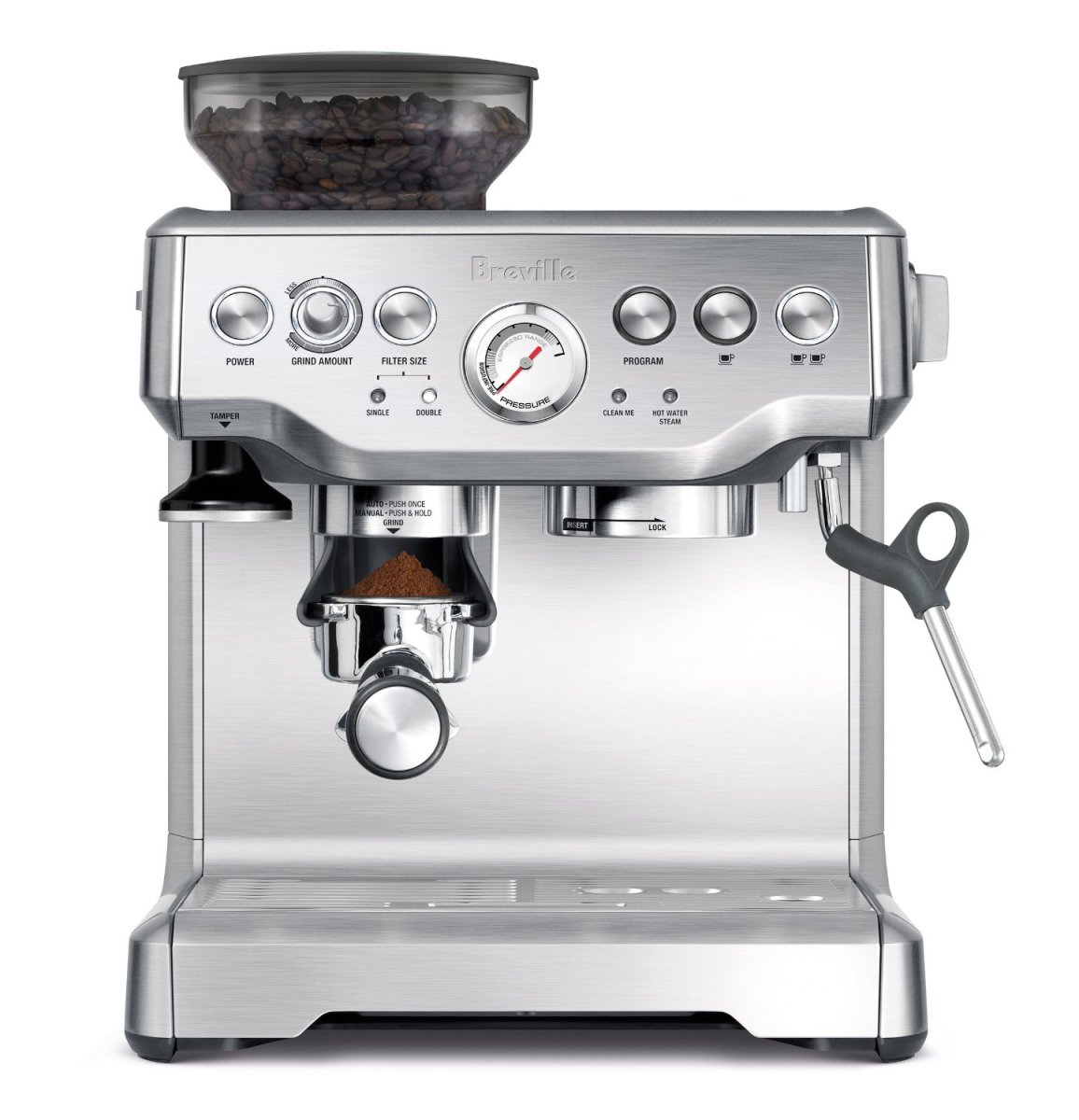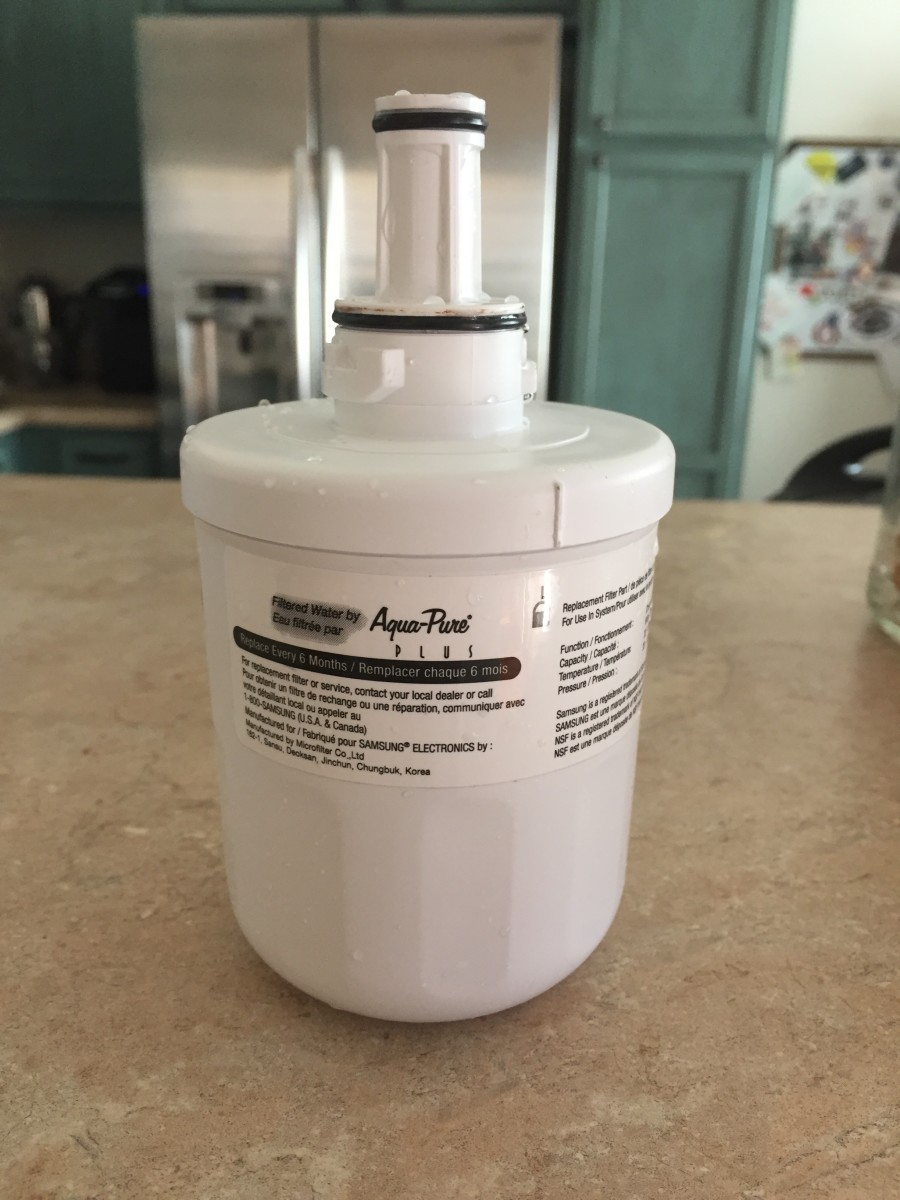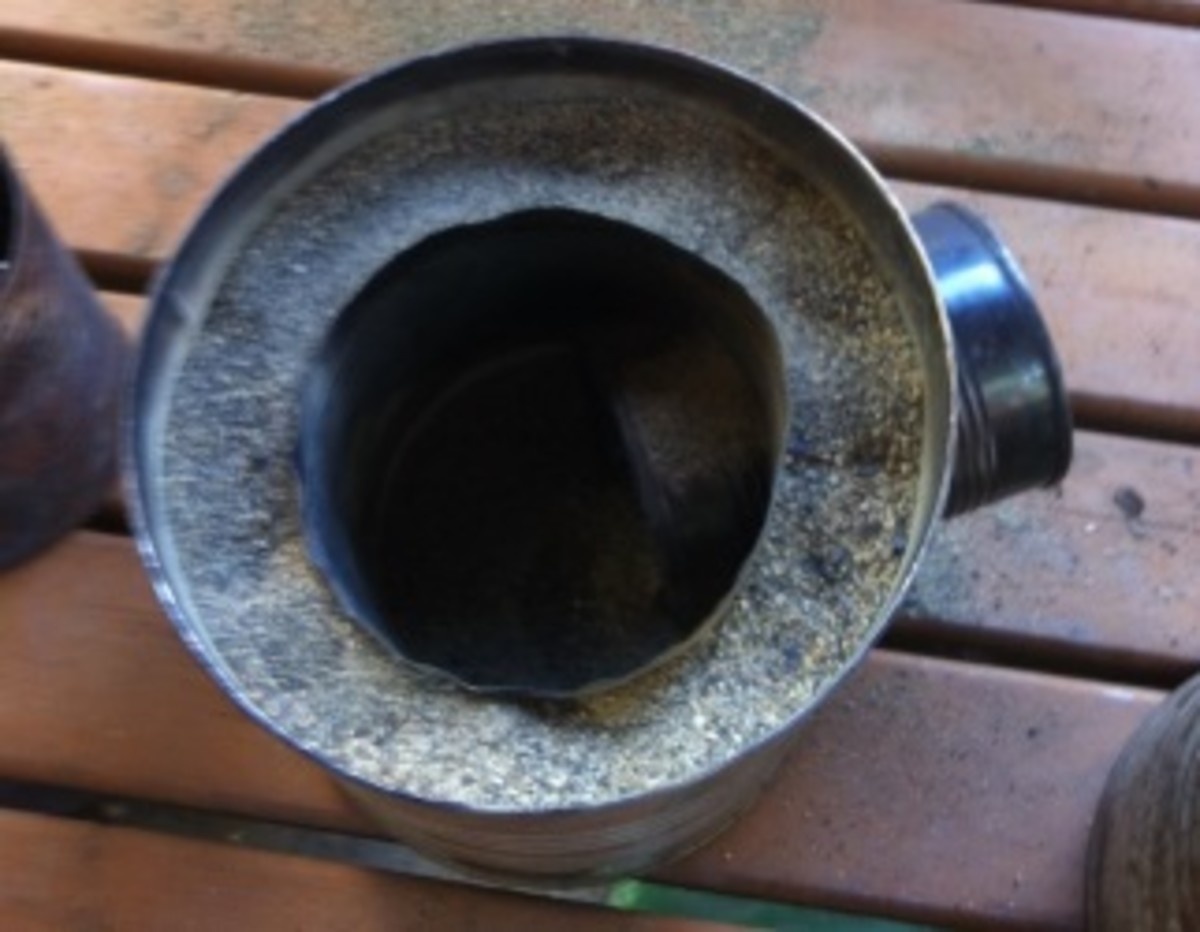Lawn Care, Mulching Grass - to mulch, or not to mulch?
Lawn Care
Lawn care begins with correct mowing. By cutting off only the top one third of the grass blades, you will be encouraging the plants to become more dense as they will branch out and mesh the individual grass plants into a turf of intertwined plants.
The reason why you should only ever cut off the top one third of the grass and should follow this faithfully as a sort of gardener’s ‘first commandment’ for lawn care, is that you will starve your lawn if you do not.
The individual blades of grass are green because they are producing food for the grass plant by the process of photosynthesis and by cutting them back too much, you are also cutting off the supply of food to the plant, making it weaker and more prone to disease.
Lawn Care - The One Third Rule
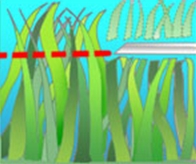
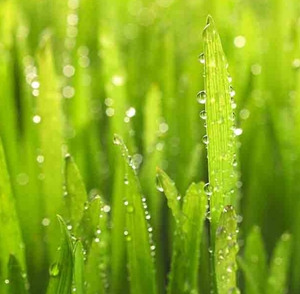
Mulch Your Lawn
If you are going to mulch your lawn, leave it about half an inch longer than you would do if you were collecting the clippings for composting. Ensure that the blades of your mower and mulching attachment are kept very sharp to ensure clean cutting, you may find it necessary to sharpen your mower blades more frequently if you are mulching. Always water your lawn after mulching as you will find that the dry clippings disperse much more easily. In addition, by watering after mulching, you will speed up the process of decomposition and the mulched clippings will settle and not blow around or off your lawn onto paths and borders.
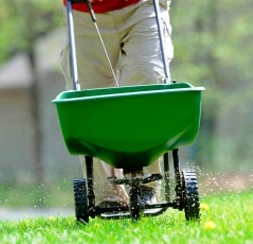
Save on Fertiliser, Save on Water
By returning your grass clippings to the lawn by mulching, you will be supplying the grass with 25% of its fertilizer requirements. Grass clippings typically contain about 80% water but they also contain nitrogen (about 4%), Phosphorus (about 1%) and Potassium (about 2%). As the mulched clippings decompose, these vital elements are returned to the soil and in addition they also feed beneficial soil bacteria that are crucial to the health of your lawn.
In addition to feeding your lawn, the mulched clippings help your lawn to retain some of the moisture that would otherwise be lost and for this benefit alone, it is worth doing when water is short, in times of drought or heat wave. Mulching is also of benefit after you have applied fertiliser to your lawn.
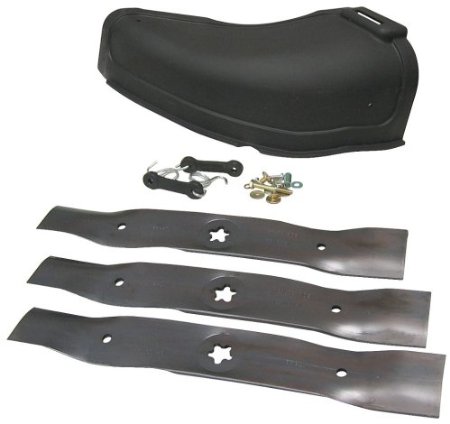
Get a Mulching Kit or Attachment for Your Mower
Did you know that you may well be able to get a mulching kit or attachment for your existing mower? This is by far the cheapest way to do it and many of the big name brands sell blades for smaller mowers and complete kits for ride-on mowers and tractors.
I have found that one of the best places to find the right attachment is to browse the selection available on Amazon. Not only are these delivered right to your door, but many come with free delivery and at big discounts too! You can check out many of the huge range of mower mulching accessories using this link.
Can't Find The Right Mulching Blade for Your Model of Mower?
If you cannot find your exact mower model but you know the blade length, why not check out the range of Maxpower Universal Mulching Blades? These are designed to fit many different makes of mower and you should be able to find a suitable blade for yours!
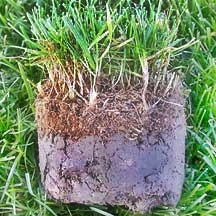
When not to Mulch Your Lawn
It is also wise to remove clippings sometimes and not mulch every single time you mow your lawn. Things to watch out for that will alert you to the necessity of removing clippings are, a build up of mulched clippings on the surface of your lawn and any signs of the development of ‘thatch’ in your lawn. Thatch is when grass stems and roots accumulate above the surface of the soil. Whilst thatch is found in every lawn, if it gets to about ½” thick, you will start to have problems with water not being able to reach roots under the soil and sunlight being blocked to the grass stems, hindering the photosynthesis process and leading to brown grass.
If you have to mow the lawn when it is very wet, simply because you have no time to wait for it to dry out, or if the grass has become much longer than usual, perhaps because you have just returned from a holiday, do not mulch the clippings. Not only will the clippings be unevenly distributed over the lawn surface, but you may also find that excessive clumps of mulched clippings damage the lawn. In these circumstances, it is much better to collect the clippings for compost.
A Lawn Tractor with Mulching Attachment
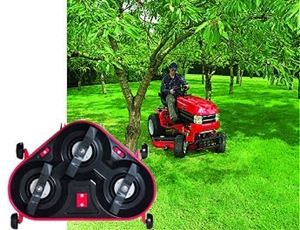
Why not join HubPages?
If you enjoy writing, why not join HubPages and be part of a great community where you can earn from your writing? You can find out more and join HubPages here, it is free!
Did You Enjoy This Article?
If you have enjoyed this article on lawn care and mulching your lawn, would you please help me to publicise it by clicking on the Tweet this and Like buttons at the top of the page or the share it button at the bottom. I would love to receive your comments, tips, hints and suggestions so please leave your comment in the section below. Thank you.

